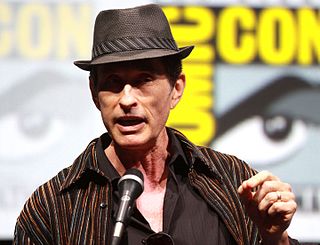A Quote by Warren MacKenzie
[Shoji] Hamada's [drawings] were little one-line notations of something he wanted to remember about a pot or a piece of furniture or a landscape or something like that, and they were just done very quickly and they had, he thought, no artistic quality. They're not great drawings, but they served to remind him of something he had in his mind, so that when he then went to the studio, that would stick in his mind and he could explore the making of the pot with the clay on the wheel.
Related Quotes
[Bernard Leach] was an incredible draftsman, and at the end of breakfast time, for instance, he would push his plate back, and he'd pull an old scrap of paper out of his pocket and a little stub of a pencil, and he'd begin to make small drawings, about an inch and a half, two inches tall, of pots that he wanted to make. And they were beautiful drawings. I really wish I'd stolen some of those scraps of paper, because those drawings were exquisite explorations of his ideas of form and volume in a ceramic piece.
I followed [Shoji] Hamada, because I guess Alix [MacKenzie] and I, we both saw the danger that lay in planning things out on paper and then simply executing them. And with Hamada there was a much more direct sense that the piece had happened in the process of making on the wheel, and that was what we wanted to do with our work. We weren't always able to do it, though.
Things happen very quickly and they have to happen quickly in order to have vitality, which I think is essentially part of a good pot. But in addition it means that you can explore an idea and change it and then change it and then change it; I don't mean by changing the one pot, but you make one pot then you make another that's related to that; you make another - you can make 50 pots in a day and none of them are going to be carbon copies of any other, but they'll all be related because there's something going through your mind about the form on that particular day.
Bernard [Leach] had acquired many [Shoji] Hamada works. Some of them, it was interesting - first of all, Hamada worked in St. Ives for about four years before returning to Japan to start his own pottery. He had exhibitions in London, and if these exhibitions didn't sell out, the galleries were instructed to send the remaining work down to the Leach Pottery, where they would go into the showroom for sale. If Bernard saw one that hadn't sold that he really admired, then he would take it (he would buy it), and it would go into the house.
Had we had all the money in the world to spend and we were doing another studio movie, we probably would have jumped quickly into the Necromonger universe and done an Orpheus Descending movie there. We didn't have that kind of resource. So, we said, this time, "If not that, this time, then what is it? What does this new movie look like?" Quickly, just in talking about it very simply with Vin [Diesel] in his kitchen, we decided on a survival, left-for-dead story, where Riddick could, as a character, reclaim the animal side.
I have had the advantage of the opportunity to meet with Mr. Trump on several occasions. And my experience is that he's very intelligent. He's thirsty for information. He wants to hear what you have to say. He listens to his advisers. He digests the information very quickly, and he's got a good memory, because I remember one time I was talking to him about something, and then he pulled some information out of his memory banks that was a great connection that I hadn't even thought to mention to him.
What he wanted was not just to hear about Hailsham, but to remember Hailsham, just like it had been his own childhood. He knew he was close to completing and so that's what he was doing: getting me to describe things to him, so they'd really sink in, so that maybe during those sleepless nights, with the drugs and the paint and the exhaustion, the line would blur between what were my memories and what were his.
She would be quiet at first. Then she would say a word about something small, something she had noticed, and then another word, and another, each one flung out like a little piece of sand, one from this direction, another form behind, more and more, until his looks, his character, his soul would have eroded away . . . I was afraid that some unseen speck of truth would fly into my eye, blur what I was seeing and transform him from the divine man I thought he was into someone quite mundane, mortally wounded with tiresome habits and irritating imperfections.
My father was a writer, so I grew up writing and reading and I was really encouraged by him. I had some sort of gift and when it came time to try to find a publisher I had a little bit of an "in" because I had his agent I could turn to, to at least read my initial offerings when I was about 20. But the only problem was that they were just awful, they were just terrible stories and my agent, who ended up being my agent, was very, very sweet about it, but it took about four years until I actually had something worth trying to sell.
Then I dropped my forehead against his and sat there for a long time, as if I could telegraph a message through our two skulls, from my brain to his. I wanted to make him understand some things. You know all that stuff we’ve always said about you?” I whispered. “What a total pain you are? Don’t believe it. Don’t believe it for a minute, Marley.” He needed to know that, and something more, too. There was something I had never told him, that no one ever had. I wanted him to hear it before he went. Marley,” I said. “You are a great dog.
Finally if I had a pot that needed decoration, I would hand it to Alix [MacKenzie] and I would say, "Can you do something with this?" And she'd look at it for a while and then proceed with a brush to embellish the form and enhance the form, and it was wonderful. She could bring the pot to life, whereas if I did it, it was a disaster.


























